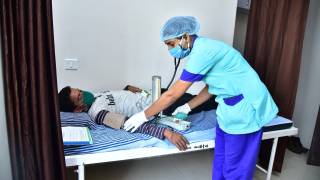COVID-19 Vaccine Protection Wanes, But They Are Our Best Defense

New studies show that first-generation COVID-19 vaccines effectively reduce severe disease but quickly lose their protective value.
In the context of the continuous emergence of SARS-CoV-2 coronavirus variants, and a potential fourth wave accelerating in Europe, these studies suggest enhancing COVID-19 vaccination coverage is still the most critical and urgent priority.
Published by BMC Infectious Diseases of Poverty on November 14, 2021, this comprehensive systematic review and meta-analysis of 58 studies included 32 studies for vaccine effectiveness and 26 studies for vaccine safety.
These results showed the effectiveness and safety of different types of vaccines varied greatly.
These researchers found a single dose of COVID-19 vaccine was 41% effective at preventing SARS-CoV-2 infections, 52% for symptomatic COVID-19, 66% for hospitalization, 45% for Intensive Care Unit (ICU) admissions, and 53% for COVID-19-related death.
Additionally, two vaccine doses were 85% effective at preventing SARS-CoV-2 infections, 97% for symptomatic COVID-19, 93% for hospitalization, 96% for ICU admissions, and 95% effective for COVID-19-related death, respectively.
From a coronavirus variant perspective, the pooled Vaccine Effectiveness (VE) was 85% for the prevention of the Alpha variant of SARS-CoV-2 infections, 75% for the Beta variant, 54% for the Gamma variant, and 74% for the Delta variant.
The overall pooled incidence rate was 1.5% for adverse events, 0.4 per 10,000 for severe adverse events, and 0.1 per 10,000 for death after vaccination.
Recently, various countries, including Israel, China, the U.S., and the United Kingdom, have introduced a booster vaccine, namely a third dose.
Some studies have found that the third dose of Moderna, Pfizer-BioNTech, Oxford-AstraZeneca, and Sinovac produced a spike in infection-blocking neutralizing antibodies when given a few months after the second dose.
In addition, the everyday adverse events associated with the third dose did not differ significantly from the symptoms of the first two doses, ranging from mild to moderate.
The second study was published by the journal Cell & Microbe on November 12, 2021, and offered a similar conclusion.
These researchers also suggest that public health interventions such as vaccine boosting, potentially with more potent vaccine types, may be needed to control the evolving COVID-19 pandemic.
In this limited comparison study, these researchers collected plasma specimens from 196 Mongolian participants fully vaccinated with one of four COVID-19 vaccines in July 2021: Pfizer/BioNTech (Comirnaty), AstraZeneca (Vaxzevria), Sputnik V, and Sinopharm.
Functional antibody testing with a panel of nine SARS-CoV-2 viral variant receptor-binding domain (RBD) proteins reveals marked differences in vaccine responses.
However, these researchers concluded that, despite the public health crisis of increasing SARS-CoV-2 infections, widespread vaccination with a lower efficacy vaccine may still represent a route to decreasing infections, hospitalizations, and mortality.
In the U.S., the Centers for Disease Control and Prevention (CDC) strongly encourage eligible people to become fully vaccinated against COVID-19 with the current generation of vaccines.
Next-generation and variant-specific COVID-19 vaccines are conducting clinical studies and could become available in 2022.
As of November 13, 2021, about 58.8% of the U.S. population had been fully vaccinated with an Approve/Authorized COVID-19 vaccine.
This compares with Europe, where about 65% of the population is fully vaccinated.
PrecisionVaccinations publishes fact-check, research-based vaccine news.
Our Trust Standards: Medical Advisory Committee
























